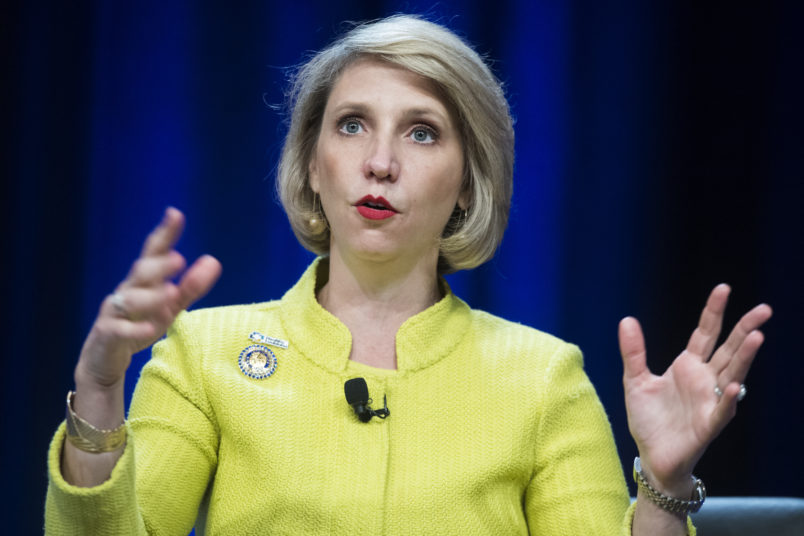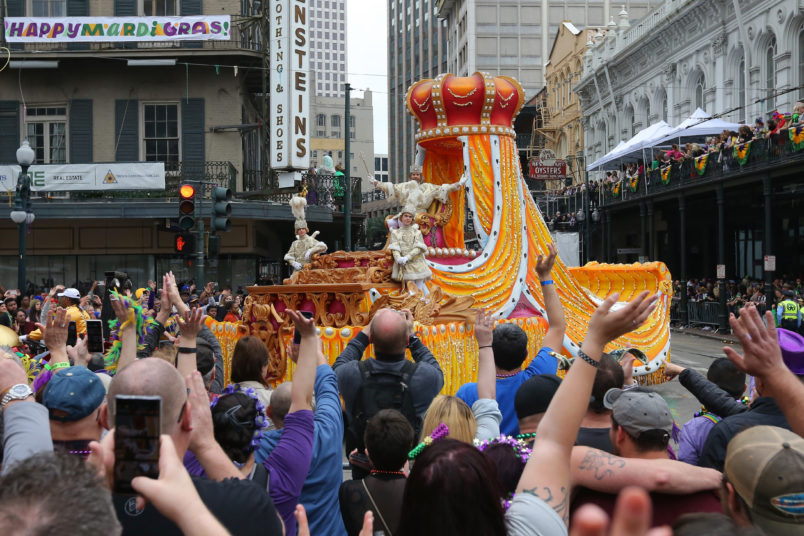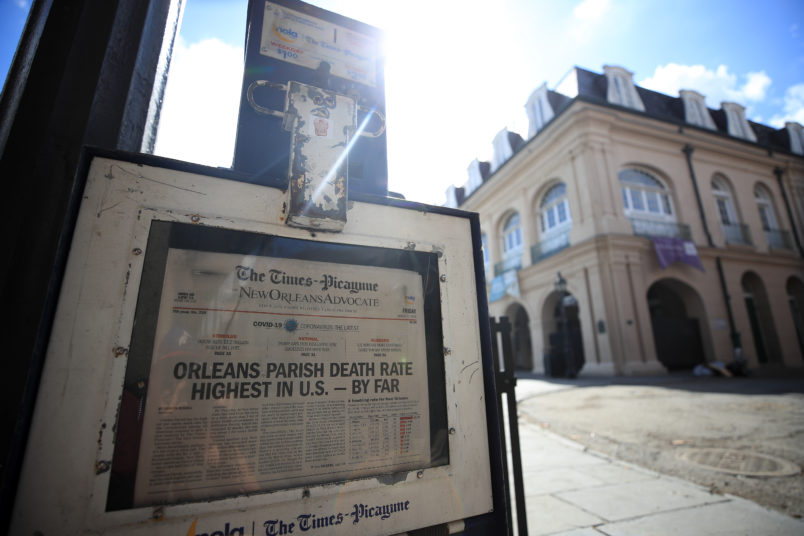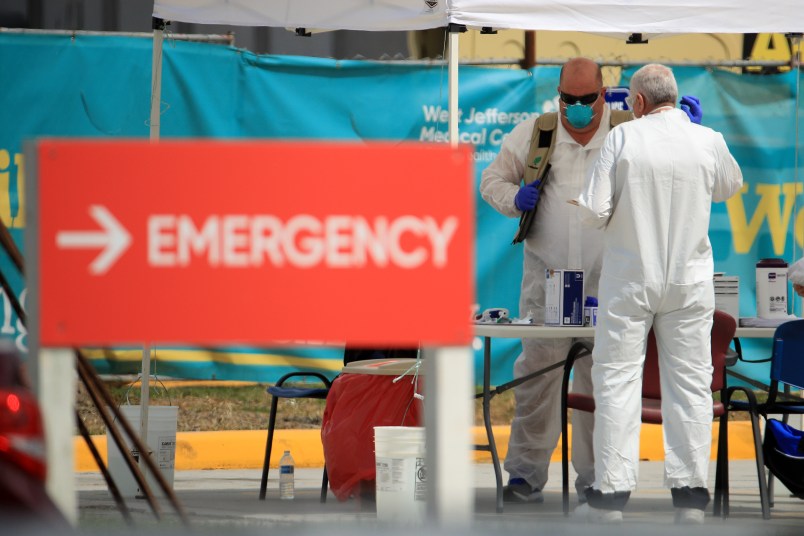On the same day that Louisiana’s governor was announcing the state had seen its highest spike in COVID-19 deaths yet, the state’s former secretary of health was on the phone with her U.S. senator trying to obtain more ventilators.
Louisiana needs 12,000 ventilators, according to the former health chief, Dr. Rebekah Gee, who now leads Louisiana State University’s sprawling health care system. She and Sen. Bill Cassidy (R) were brainstorming over the phone and in texts Tuesday about how they could get their hands on even just a few dozen of the machines.
“I said to him, ‘Look, I’ll spend a day finding two’ — that’s two lives we can save — but that’s just absurd that that’s where we are,” Gee told TPM Tuesday afternoon.
Gov. John Bel Edwards (D) had just finished up a daily press briefing where he announced 54 more COVID-19 deaths in the state, while the number of confirmed cases had risen by 30 percent.
Louisiana could reach its ventilator capacity as soon as April 4, Edwards said. Of the 14,000 ventilators the state ordered from private and public sources, it’s received just 292 from private vendors, while a shipment of 150 from the national stockpile, which President Trump approved this week, is on its way.
Gee told TPM that the federal government needed to take more of a role in directing the distribution of supplies like ventilators, as a “feeding frenzy” and “free-for-all” has broken out among the states.
“There’s this whole sense of, ‘Are you hoarding versus are you preparing?” Gee said, as she explained why the lack of ventilators was her chief concern about dealing with virus.
“Well the federal government really needs to step in … and help to allocate some of these [ventilators], because certainly any leader of any health system isn’t going to give up anything right now, voluntarily, because they’re going to be predominantly concerned with their people.”
‘Tremendous Challenges’ With Chronic Disease
Louisiana is one of the poorest states in the country, with four out of 10 of its residents at under 200 percent of the poverty rate.
“It’s a low income state that has tremendous challenges in terms of the burden of chronic disease, obesity, smoking, hypertension, diabetes and so on,” Gee said.

One of her biggest achievements as the state’s health secretary, a role she left for LSU just this January, was implementing Louisiana’s 2017 Medicaid expansion. The rollout was deemed a smashing success in the face of a GOP legislature that refused to fund the launch of the program.
While there have been many indicators that the expansion has already improved health care access in the state, “that doesn’t fix chronic disease in a short period of time,” she said.
“We know that this virus disproportionately kills people who have chronic disease and who are older,” she said.
‘We Were Not Psychics’
If the prevalence of chronic disease was the tinder that could make a COVID-19 outbreak particularly painful in the state, Mardi Gras was likely the match.
Gee and others believe the several-day festival turbocharged the spread of the virus through the state. Nevertheless, she refused to place blame on the decision to move forward with February carnival, arguing that “nobody, anywhere in the country, was canceling things at that time.”

“South-by-Southwest wasn’t cancelled until weeks after Mardi Gras,” she said, referring to the Texas convention, usually held in mid-March, that wasn’t cancelled until March 6.
She said that if anything, “the early stumble” with testing and the “downplaying” of the endemic by “federal leaders” were why events like Mardi Gras went on.
“We were not psychics. We did not realize what was going to happen,” she said.
‘Unpredictable As The Weather’
Gee said the current preparations for the outbreak’s peak reminded her of how the state braces for a hurricane, and in that sense, there’s some “good news.”
“We know generally, when we’re that close to a hurricane, when it’s coming. We don’t always know where it’s going to hit,” Gee said, adding that similarly, the virus was “unpredictable as the weather.”
“But typically, what we’re concerned about here is that [when] hurricanes are going to hit, the majority of our health care infrastructure will then be damaged or unusable in the wake or aftermath of a storm,” she said — a concern not present with the virus.

“The situation here is that the majority of our health care infrastructure is in south Louisiana, which just happens to be where we’re bearing the brunt of the burden of this virus. So that is a positive,” she said, as she pointed to the health care centers like LSU’s, Tulane’s, Ochsner and Lake Charles Memorial.
“But again, it’s not enough,” she said.
The state is preparing for the outbreak to get worse before it gets better. In an echo of 2005’s Hurricane Katrina, the New Orleans convention center is being transformed into a recovery center. Hospitals might be out of beds, according to the governor, by April 7.



